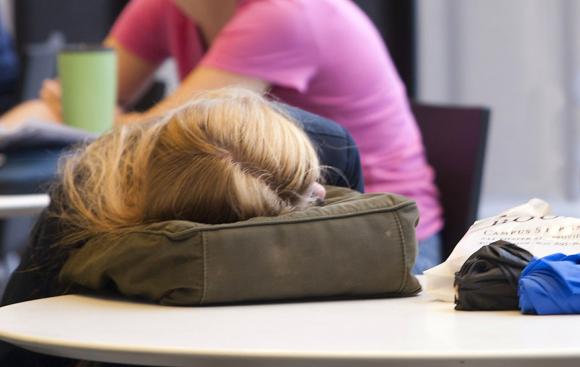This fall many high school students veered into a perfect storm for their sleep health when they headed back to school. Although their bodies naturally want to go to sleep later than when they were younger, they are required to wake up earlier for school than they used to. Meanwhile, their workloads have increased, their bedtimes are less strictly enforced and their access to light-emitting gadgets at nighttime has increased. The result is an unhealthfully shortened period of sleep each night.
School administrators would serve students and teachers better by moving the opening bell later. The weight of the evidence from decades of studies suggests that creating conditions to encourage student sleep would improve the students’ mood, energy, alertness, and academic performance.
A central finding of research, in my lab and in others, is that adolescents need about as much sleep — about 9 hours — as preteens do. During sleep, maturing brains perform important tasks of regulation and self-organization. The brain also uses this time to consolidate learning from the previous day.
What changes with age is not the need for sleep, but the time when sleep begins. With puberty comes a natural inclination to stay up later, a biological phenomenon that is not exclusive to humans. Researchers have documented it in pre- and post-pubescent rodents and monkeys too.
It is a losing proposition for school districts to clash with nature, but many do so with serious consequences of shortened sleep. A 2006 poll of teens and parents by the National Sleep Foundation showed that average sleep duration on school nights drops from 8.4 hours in sixth grade to 6.9 hours by 12th grade. Most of that change stems from later bedtimes (a trend nature encourages), compounded by early rise times demanded by the school schedule.
Our strong concerns about health consequences of early start time emerged from our study of students whose start time between ninth and 10th grades changed from 8:25 to 7:20. Grade 10 students slept nearly an hour less each night and were extremely sleepy on objective measures of sleepiness at the 8:30 hour. Half showed signs characteristic of narcolepsy! The health consequences don’t stop at sleepiness. Other studies of sleep-deprived teens find associations with depression, suicidal ideation, behavior problems, poor grades, driving crashes, obesity, and weakened immune systems.
Schools are not solely responsible for the perfect storm of teen sleep, but they can make a huge difference by moving to a later start time. The result would be happier, healthier, more attentive, and better performing students in high school.

